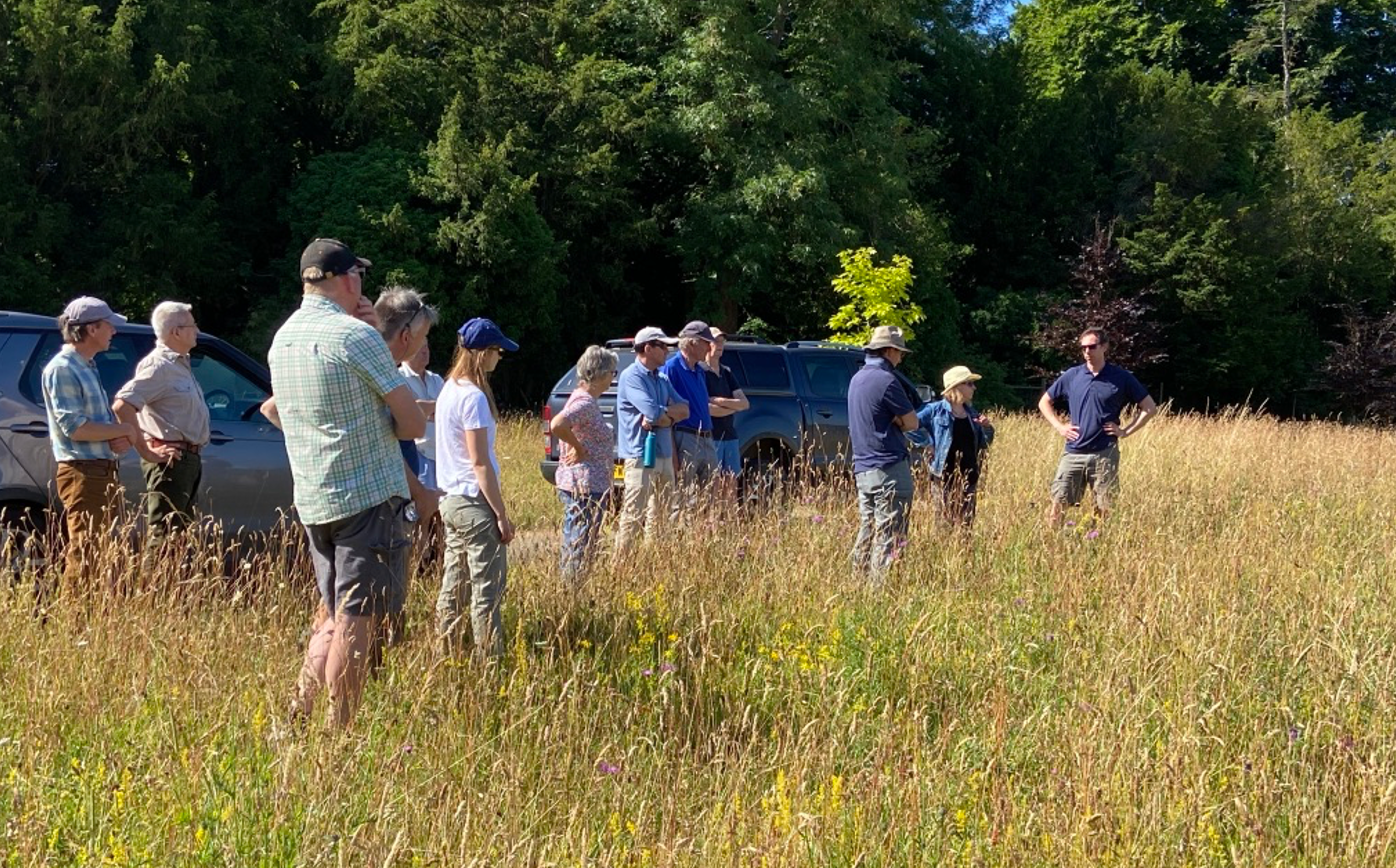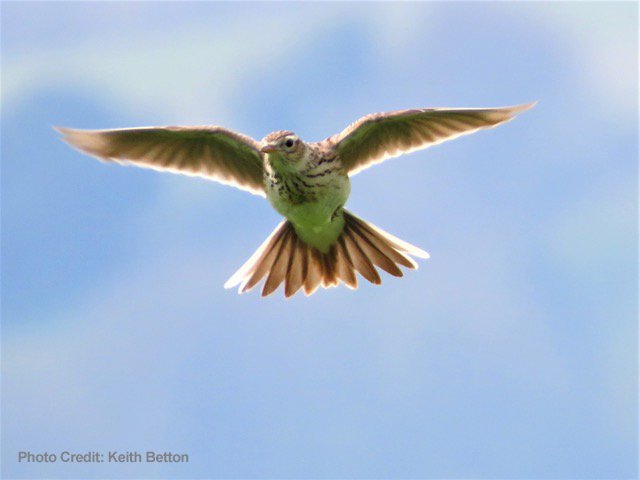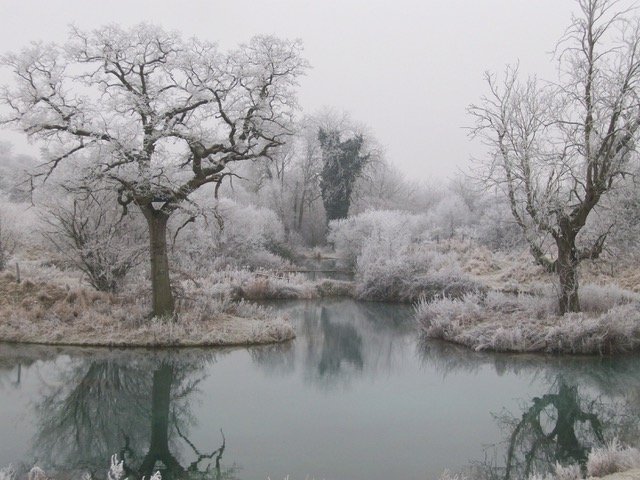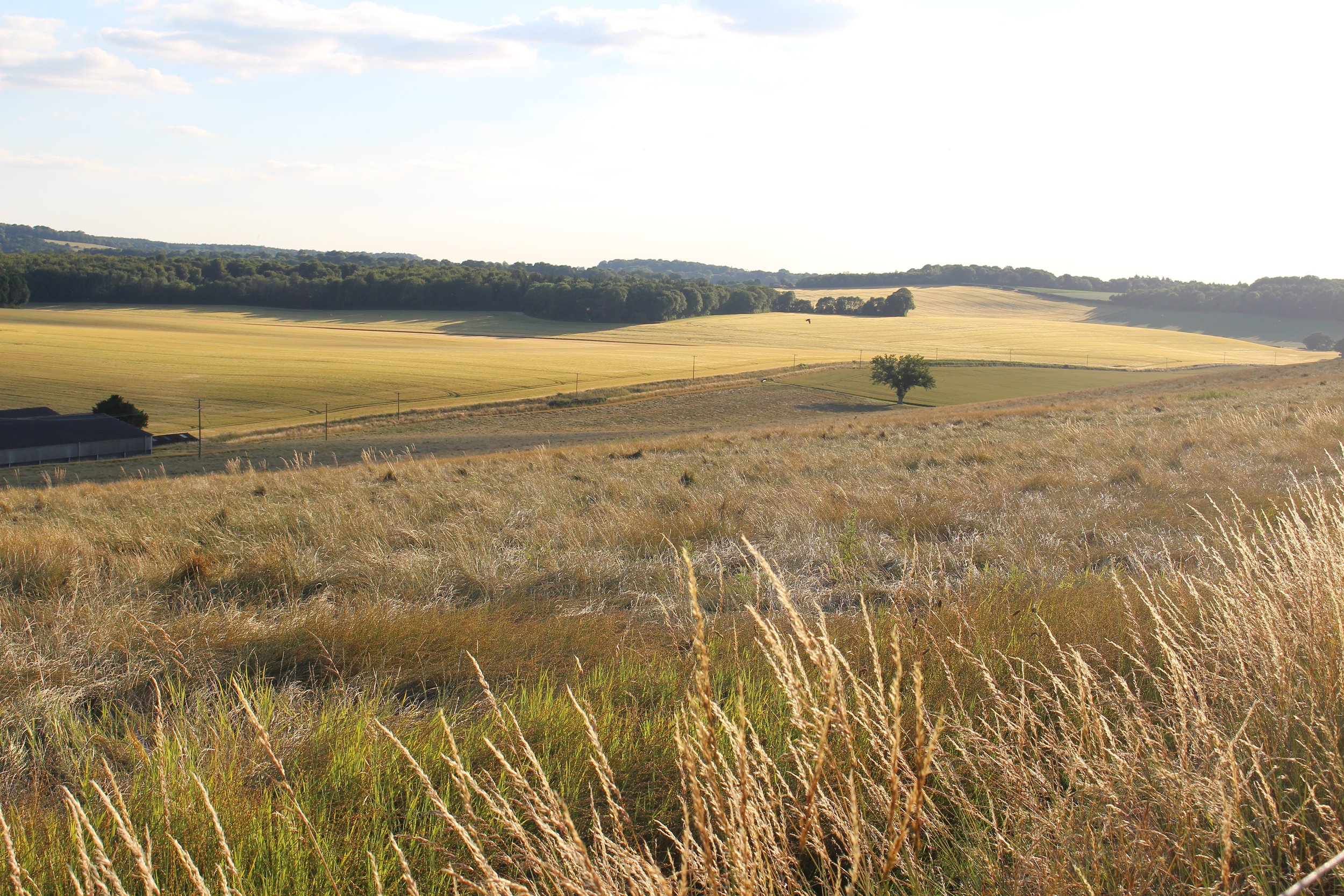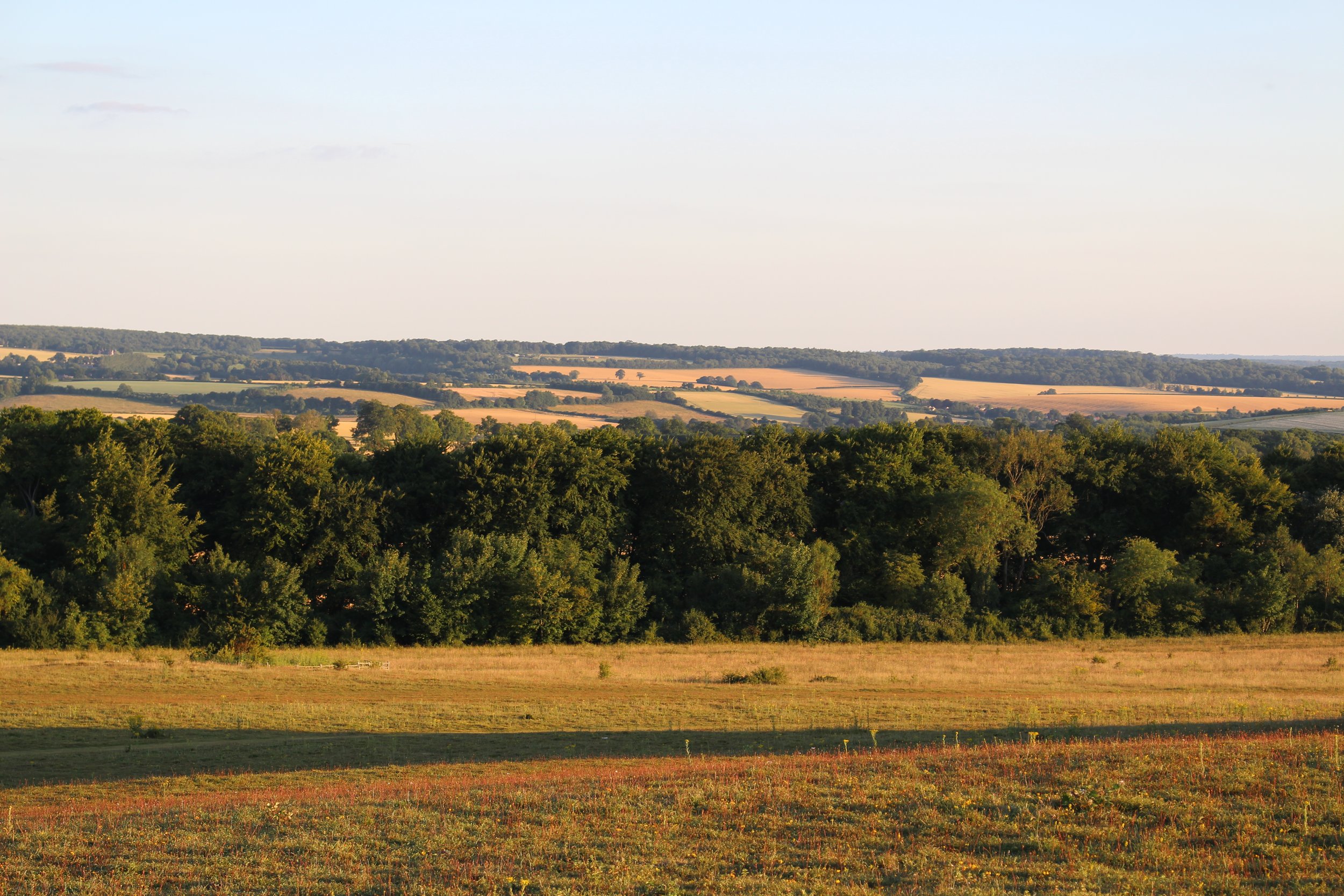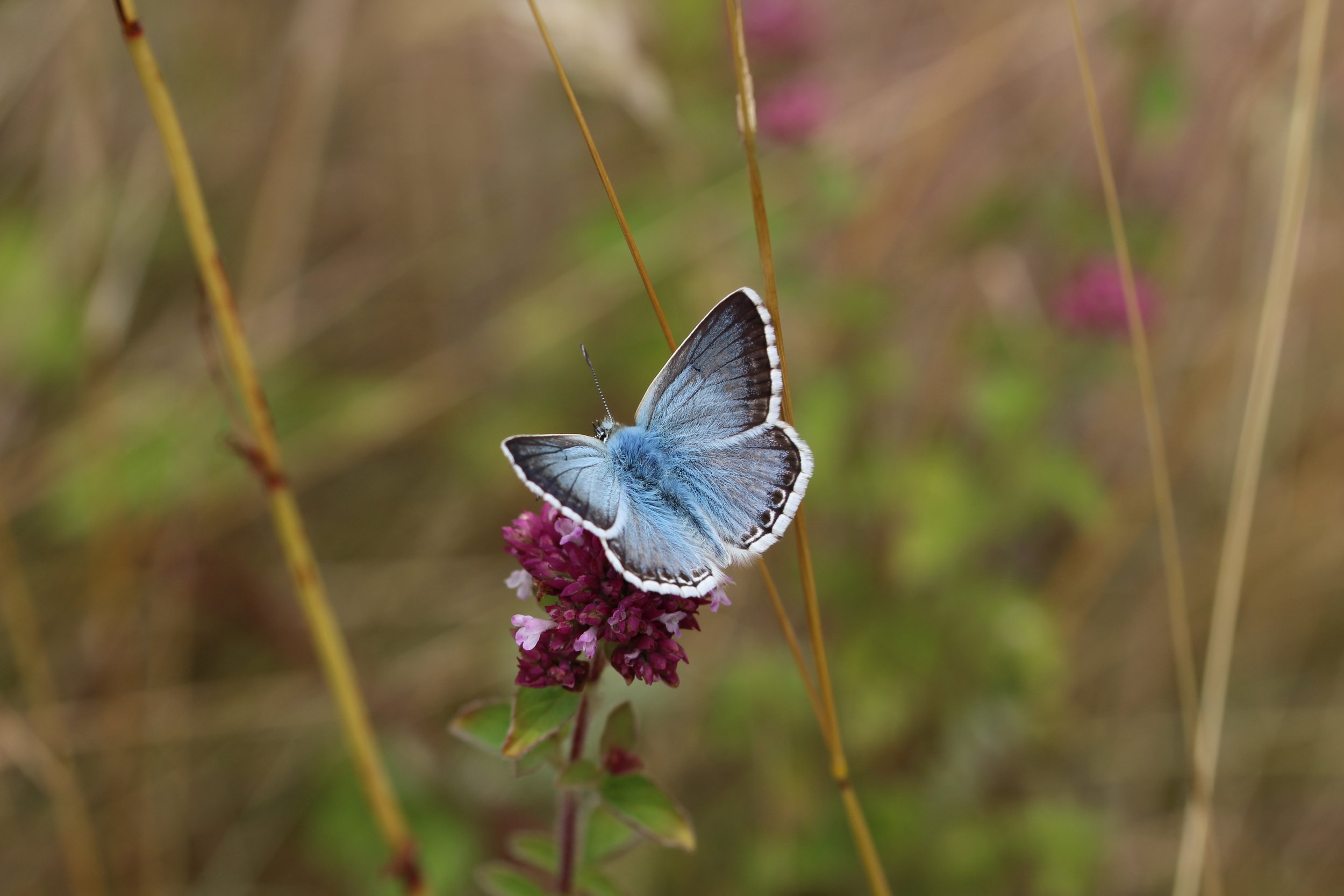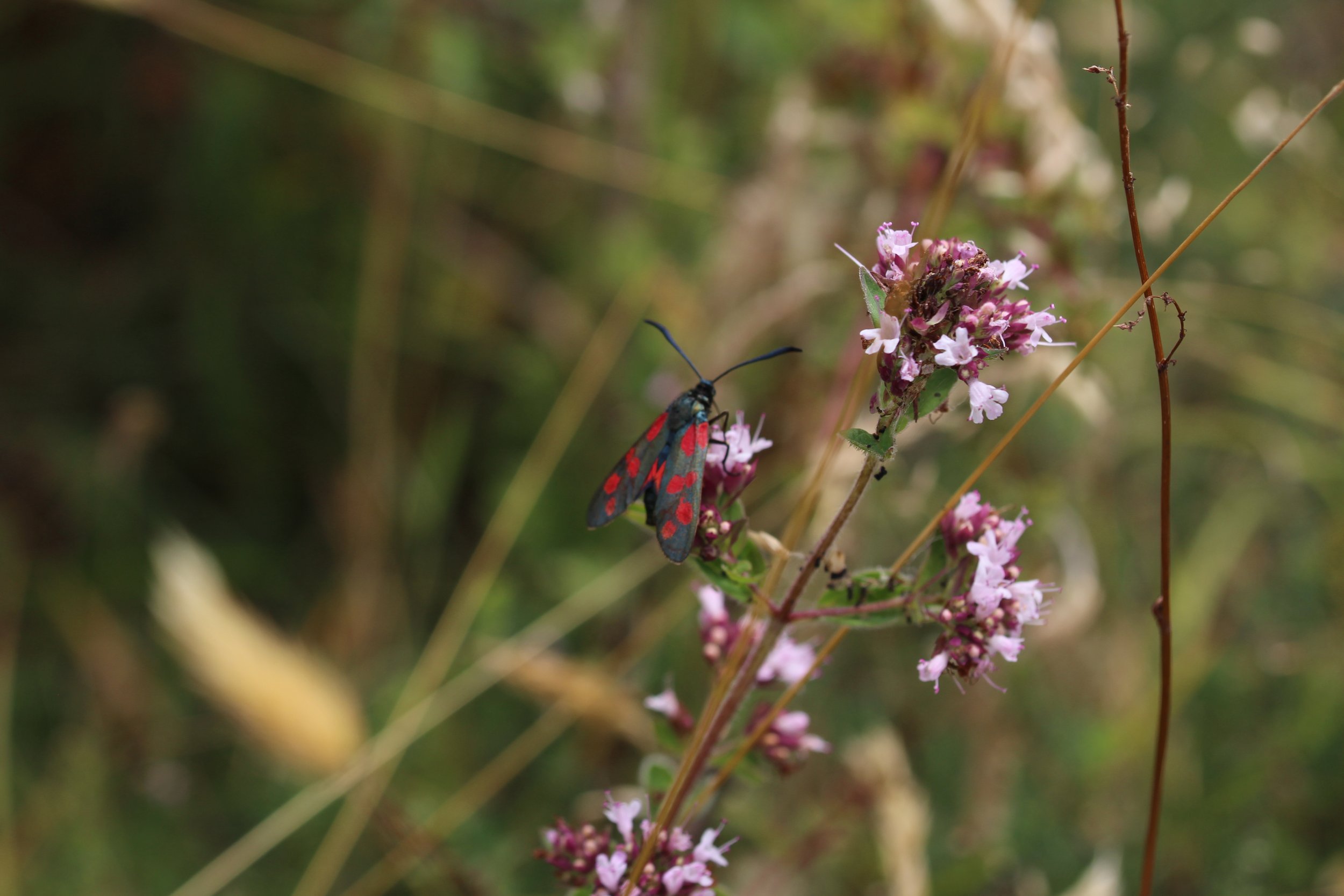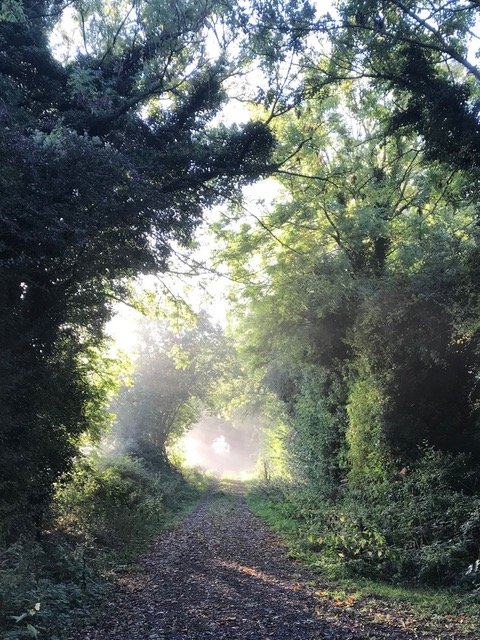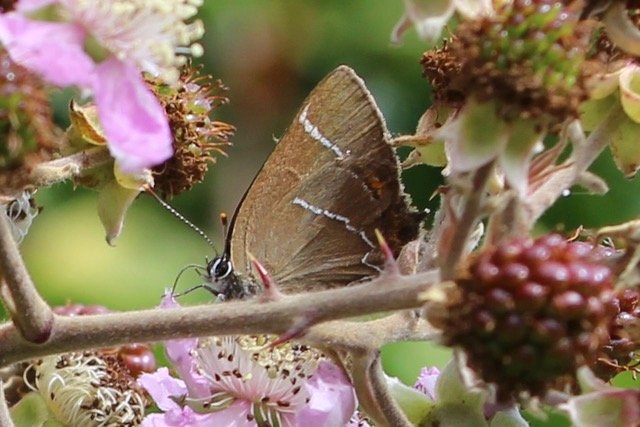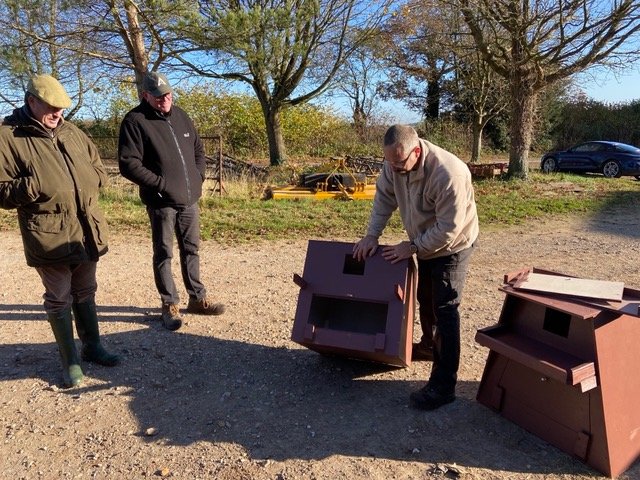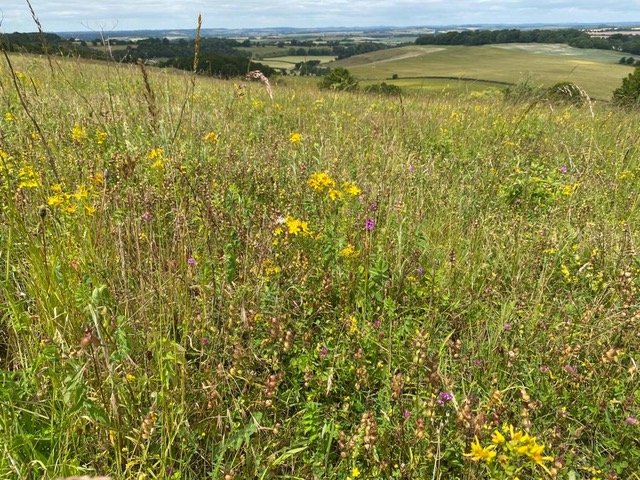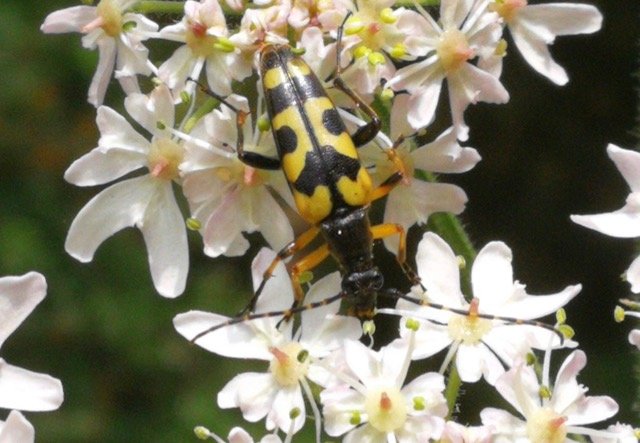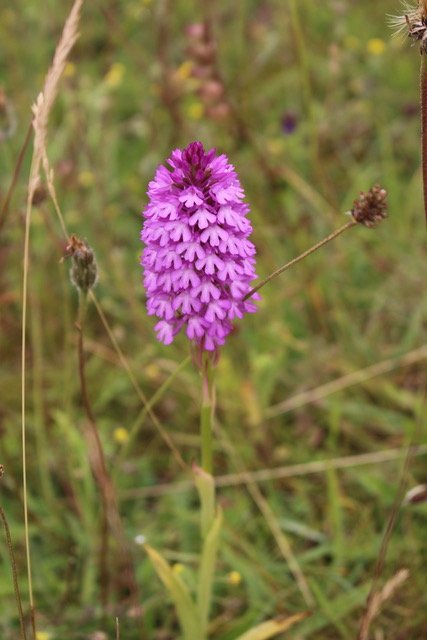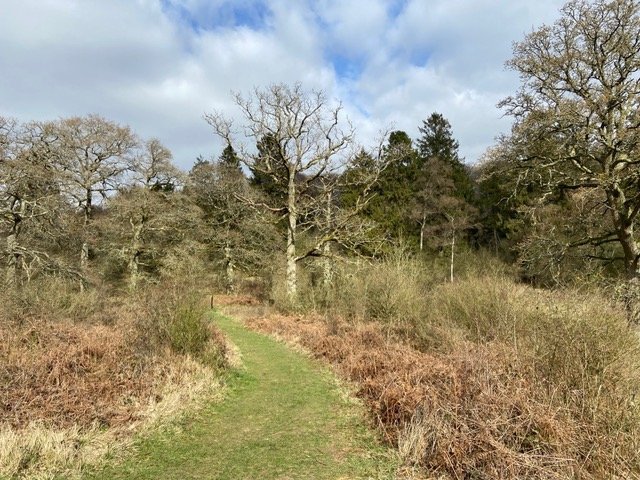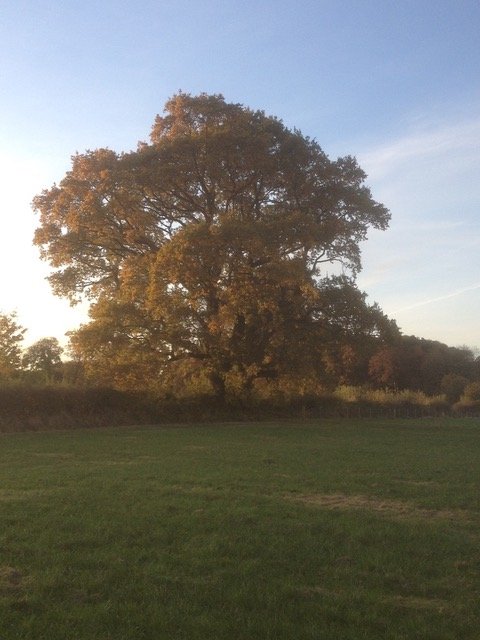
A resilient landscape restored for future generations.
Our Vision
Our vision is for a connected landscape where nature thrives
and we are surrounded by nature on our farms.
There will be swarms of mayflies and insects on the river, clouds of butterflies and vibrant rare plants in our field margins, breeding lapwing harboured in our fields, barn owls sweeping across the landscape at dusk, flocks of swallows and house martins, a rowdy dawn chorus in our woods and hedgerows and a ceaseless summer buzz of nature.
A resilient landscape restored for future generations

Our Aims
-
To seek out and spread good practice by:
visiting each other’s farms
inviting experts to visit and share their knowledge with us
visiting other sites that showcase success
-
To:
restore the river Test, its tributaries of the Anton and Dever and its wetlands
restore and re-connect fragments of chalk grassland on the Downs
actively manage ancient and broadleaved woodlands
expand our hedgerows and field margins for wildlife
-
To improve soil health by:
keeping soils covered and minimising disturbance
increasing crop diversity
including more livestock in crop management
-
To improve our ground and surface waters through:
reduced reliance on chemical inputs
managing and reducing on-farm pollutants
-
To engage with local communities and volunteers through:
On farm surveys and events
Contributions to local newsletters and initiatives
Signage and social media
To produce more sustainable healthy food and help reduce the impacts of climate change through:
How we work
We are neighbouring farmers and landowners who came together in 2019 to share our knowledge and experience about how to farm commercially while improving the environment. We have signed a simple membership agreement that commits us to working across our farm boundaries.
We are funded primarily from the government but also receive other sources of funding for special projects.
So far…
We meet regularly to discuss different topics, learn where to get expert advice, resolve challenges and celebrate successes. Current areas of focus include:
creating healthier soils
restoring river and chalk grassland communities
establishing communities of rare arable plants
supporting barn owls
enhancing woodland biodiversity
responding to ash dieback.
We have employed a facilitator to help support the cluster and are mapping a simple baseline against which future progress can be measured. We are also working with volunteers to conduct annual bird and moth surveys across the cluster.
Our Projects
Our group is working with the Wessex Rivers Trust, The Piscatorial Society and The Test & Itchen Association on several projects aimed to improve the ecological status of our rivers
River restoration
Uptake of Countryside Stewardship is strong across the group which in turn is leading to a significant increase in the proportion of hedgerows and field margins managed for nature.
Biodiversity in the farmed landscape
Following the example of others there is growing interest in linking fragments of chalk grassland between neighbouring farms, particularly on the steep scarp slopes of the downs.
Chalk Grassland Restoration
Latest News & Events

How to engage with the cluster.
If you are local and would like to know more about what we do or support our work, please contact Matthew Norris-Hill email:



